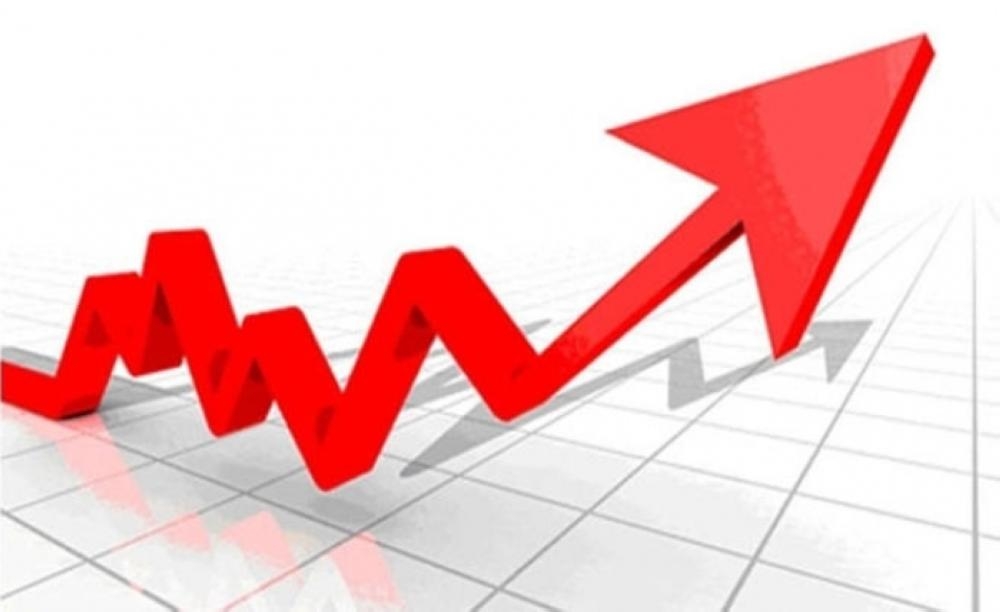- Local News
- Sat-2024-10-05 | 04:57 pm

Nayrouz News Agency :
Jordan's economy grew by 2.4% in the second quarter of 2024, a result seen by economists as a solid achievement, especially amid the ongoing challenges posed by Israel’s military aggression on Gaza.
Experts noted that this growth underscores the resilience and adaptability of the national economy despite ongoing regional turmoil, supply chain disruptions, and rising shipping costs.
Speaking to the Jordan News Agency (Petra), economists highlighted Jordan's ability to maintain positive momentum through focused domestic production and clear economic policies aimed at bolstering overall stability.
They also pointed to the country's adherence to its comprehensive Economic Modernization Vision as a key factor driving sustainable growth.
Jordan’s gross domestic product (GDP) growth rate of 2.4% in Q2 2024 reflects steady expansion across key sectors, with agriculture leading the way, recording a 6.2% increase.
The transport, storage, and communication sector followed, growing by 4.8%, while the electricity and water sector saw a rise of 4.5%.
Meanwhile, the manufacturing sector posted a more moderate growth of 3.1%. However, the mining and extraction industries and the construction sector reported slight contractions of -1.3% and -1.5%, respectively.
Musa Al-Saket, a member of the Amman Chamber of Industry, emphasized that while the 2.4% growth is a promising sign, it remains modest in the context of Jordan’s 1.9% population growth rate.
He pointed out that the net impact is only a 0.5% real growth in per capita terms, which is insufficient to drive substantial job creation or significantly boost the economy.
Al-Saket noted that agriculture’s 6% growth offers optimism but warned that industrial growth, at just 3.1%, continues to underperform.
He underscored the importance of the industrial sector, not just in GDP contribution but also in employment, adding that construction’s continued contraction reflects broader challenges in the real estate and infrastructure sectors.
Economic expert Noah Shiyyab echoed these sentiments, saying that the current geopolitical climate, including the war in Gaza and regional instability, makes this level of growth a positive sign.
However, he cautioned that growth below 5% falls short of the targets set by Jordan’s Economic Modernization Vision, which seeks to foster sustainable development and job creation.
"While the 2.4% growth shows resilience, it does not provide the scale needed to meaningfully improve living standards or reduce unemployment," Shiyyab said, adding that stronger performance in key sectors like manufacturing, industry, and construction is essential to achieving broader economic goals.
Economic analyst Ahmad Al-Majali described the current growth as a significant milestone, considering the international and regional pressures on Jordan.
He highlighted the ongoing Israeli aggression on Gaza and its wider economic ripple effects, from fluctuating markets to disrupted supply chains.
Despite these challenges, Jordan has maintained a flexible and dynamic economy, thanks to well-planned economic policies aligned with the royal vision.
He also credited Jordan's leadership for consistently pursuing reforms that bolster economic immunity against external shocks. According to Al-Majali, the growth sends a strong message to both domestic and foreign investors that Jordan remains a stable and promising environment for business, even in times of regional crisis.
Board member of the Jordan Economic Forum, Mohammad Al-Qaryouti, underscored that despite regional and global economic pressures, Jordan has demonstrated strength as an institutional state, with well-coordinated efforts between public and private sectors.
Al-Qaryouti pointed out the government’s steady focus on self-reliance through domestic production and services as key to the country's economic resilience.
He further emphasized that the agriculture sector’s 6.2% growth, despite Jordan being one of the world’s most water-scarce nations, reflects significant advances in agricultural methods and market expansion.
Al-Qaryouti also noted that while the construction sector contracted, other sectors such as wholesale, retail, hotels, and restaurants maintained steady growth, driven by price stability in goods and services. Meanwhile, the 3.1% growth in the manufacturing sector highlights an increased focus on value-added production.
Financial services, insurance, and the overall banking sector also saw growth of 1.6%, a notable achievement given global market volatility.
Al-Qaryouti stressed that Jordan’s foreign currency reserves, surpassing $20 billion, underpin the country’s economic strength.
Overall, economists agree that while Jordan’s recent economic performance is commendable, the focus must remain on achieving higher growth rates to meet the nation’s ambitious long-term development targets and address underlying structural challenges.










